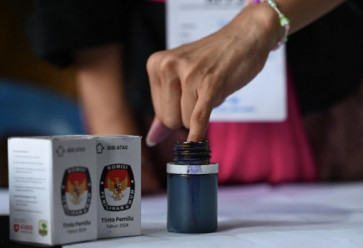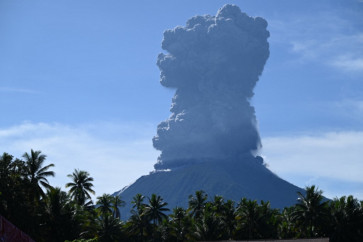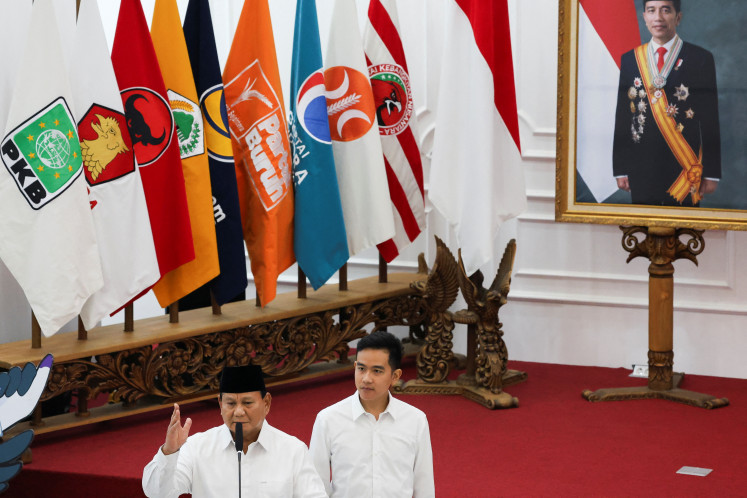Police brutality and land reform
Police brutality and human rights violence have occurred yet again in the country’s ongoing agrarian conflicts
Change Size

P
olice brutality and human rights violence have occurred yet again in the country’s ongoing agrarian conflicts. The recent tragedy in Bima, West Nusa Tenggara, is just one of many incidents that evince the rampant use of violence and disrespect for human life within the police force.
Often times, in the name of security, the police use excessive force. Security has often justified the state’s policies and actions. For security reasons, abuse of power for the purpose of obtaining money from corrupt business people in the mining and plantation sectors has led to evictions and seizures of people’s land.
The acts of violence and human rights violations committed by the security apparatus in Mesuji, Sumatra, and Bima are intolerable. Standard operating procedure (SOP) No. 1/2010 on anarchy countermeasures issued by National Police chief Gen. Bambang Hendarso Danuri (B.H.D) as a legal basis for the police’s action is unacceptable. The SOP has been scorned and rejected by civil society because of its obscure and multi-interpreted wordage, which has been used to justify the excessive use of violence and should, therefore, be revoked.
In the relationship between a state and its citizens, the objective of the use of violence is to protect the rights and freedoms of the citizens themselves. The protection and enforcement of human rights is a state obligation, so any use of force must create a sense of peace in society and uphold citizens’ rights and freedoms. In a democracy, the use of persuasion and negotiation is given the priority.
In handling protests, the police should follow the UN resolution on the principle acts of law enforcers within the Code of Conduct for Law Enforcement and the UN Basic Principles on the Use of Force and Firearms by Law Enforcement Officials. Under the UN conventions, any use of force and firearms must comply with three principles: legality, necessity, and proportionality.
If the use of force can be avoided, law enforcers must maintain security with actions that are proportional to the situation and conditions in the field. A misuse of force and guns can be problematic, especially if it causes death, and criminalization.
In accordance with the principles, law enforcers must avoid the use of violence in dealing with peaceful gatherings. When unavoidable, the use of force must be minimized. In the event of riots, chaos and uproar, law enforcers are allowed to use force but in a proportional manner. They cannot fire indiscriminately at civilians or use violence as a practical tactic to disperse a gathering. They must also minimize the damage and injuries created so as to respect and protect human dignity.
The National Commission on Human Rights’ (Komnas HAM) findings, which concluded that human rights violations took place in Bima and Mesuji, must be followed by law enforcement processes to bring the key actors and the perpetrators of the violence to justice. There are many cases of state atrocities that only stopped with the rights commission without any legal process being carried out within a just and fair judicial mechanism.
Acts of violence involving the police have only been brought to police disciplinary hearings, which almost invariably provide impunity to the perpetrators rather than fair legal settlements. Police officers found guilty of committing violence have received light punishments, such as suspensions of promotions or a 21-day confinement as in the Mesuji case. This impunity mechanism only perpetuates the use of brutality.
It must be admitted that the police’s use of violence in land conflicts reflects the state’s failure to realize long-sought agrarian reform. Human rights violations in land disputes are a result of the state’s failure to better arrange the land sector. The rights commission’s data shows there are at least 6,000 cases of human rights violations every year, with at least 1,000 of them implicating plantation companies. The Forestry Ministry, Energy and Mineral Resources Ministry, State Land Agency, regional governments and the President himself cannot escape responsibility for the human right violations in land disputes.
The country will witness more conflicts and violence as happened in Mesuji and Bima unless agrarian reform, as stipulated in the People’s Consultative Assembly (MPR) Decree No. IX/2001, materializes.
One of the reform’s goals — the redistribution of land to the people (land reform) — was conducted during the Sukarno administration. Aside from the complexities of and obstacles to the land reform program that time, the strategy was aimed at winning popular support. The land reform was halted under the Soeharto regime, where a capitalistic land strategy was installed to facilitate foreign investments at the expense of the people.
We now realize that the massive exploitation by giant multinational corporations and transnational corporations has done more harm than good. This land strategy has also caused inequalities and disparities in land ownership. Dubbed an agricultural country, it is ironic that each of the 24 million farming families in Indonesia only owns 0.3 hectares of land.
Studies and practices in other countries, like South Korea and Japan, concerning land reform show that land reform programs form the basis for development processes. It is time for President Susilo Bambang Yudhoyono to meet the MPR’s decree on agrarian reform. We must also remember that agrarian reform was one of his promises during his campaign for 2004 presidential election, which remains unfulfilled.
For this to happen, the President must create an agrarian reform committee that involves representatives from civil society to develop an agenda for agrarian reform, including the redistribution of land to society, the returning of land previously seized from the people, and the limiting of land ownership as stated in Land Law No. 5/1960.
Agrarian reform must be followed by a re-evaluation of land sector policies that counter the spirit for agrarian reform and spark land conflicts.
If this agrarian reform program is not fulfilled before 2014, it may be said that President SBY was the longest-serving president in the reform era that did not generate any gains for the people. We hope not.
The writer is a program director with the human rights watchdog Imparsial and author of Perebutan Kuasa Tanah (Struggle for Land Authority),
Lappera Pustaka Utama, 2002.









